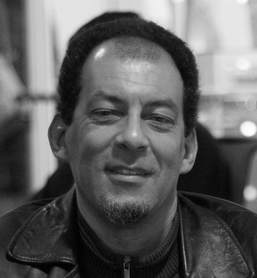John Blanke: An Agent of Change The image and life history of John Blanke ushers into the dawn of the modern world and perhaps makes us question everything we think we know about it. John Blanke was undoubtedly not the first African to be employed at a royal court in England and certainly not the only one in the early 16th century. He was, like many who would follow him, a musician in the employ of the monarch but that it not his chief significance. That significance lies in the fact that his image has been captured for us in the archival records, as have some other important aspects of his life.
John Blanke speaks to us in a way that he could never have imagined. His life may not have been too dissimilar to the hundreds of other Africans who were residents in London and other parts of England and Scotland in Tudor times. He was a free man and wage earner, a status that was not as common then as it is today. Many of us have been led to believe that in this period Africans could only be free in Africa and wherever else they might appear enslaved status must be assumed. John Blanke and many other Africans in Tudor England demonstrate how inaccurate this assumption has been. He therefore does us a great service, since we can conclude that if there has been one false assumption there might also be many others. From his petition to the king we know something of the hardship that John Blanke and others faced in this period and that he successfully petitioned for a doubling of his wages, something that few of us would consider today and even fewer would be likely to achieve. John Blanke is therefore one of the first workers on record to successfully demand higher wages and the first African to do so. The fact that he achieved this victory tells us not only something about his skill as a musician but also his status at the Tudor court. Further evidence of this status is shown by his marriage and the wedding present he was given by Henry VIII. There is no doubt that the few glimpses we have of John Blanke produce as many questions as answers but that is not a bad thing. History is the subject above all others that encourage us to be critical of accepted wisdom and to find the evidence to challenge it. The study of history is after all the study of change and the role that humans play as agents of that change. John Blanke, trumpeter, wage earner and petitioner was one of those agents but then so are we. Hakim Adi Professor of the History of Africa and the African Diaspora University of Chichester http://www.hakimadi.org |
| The John Blanke Project | hakim adi |
